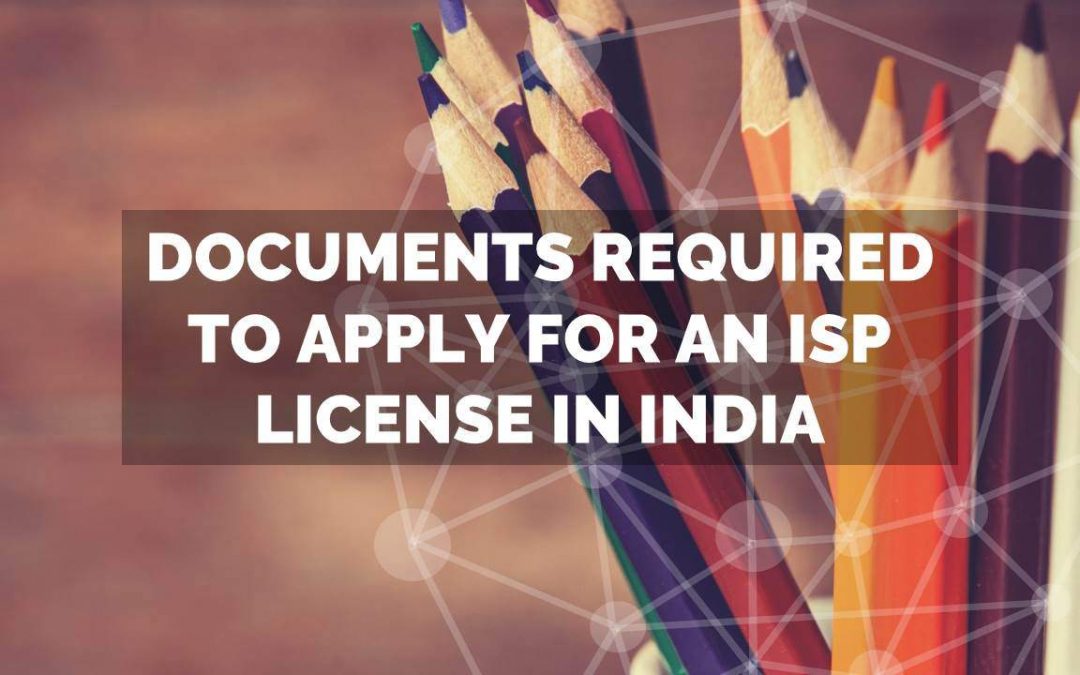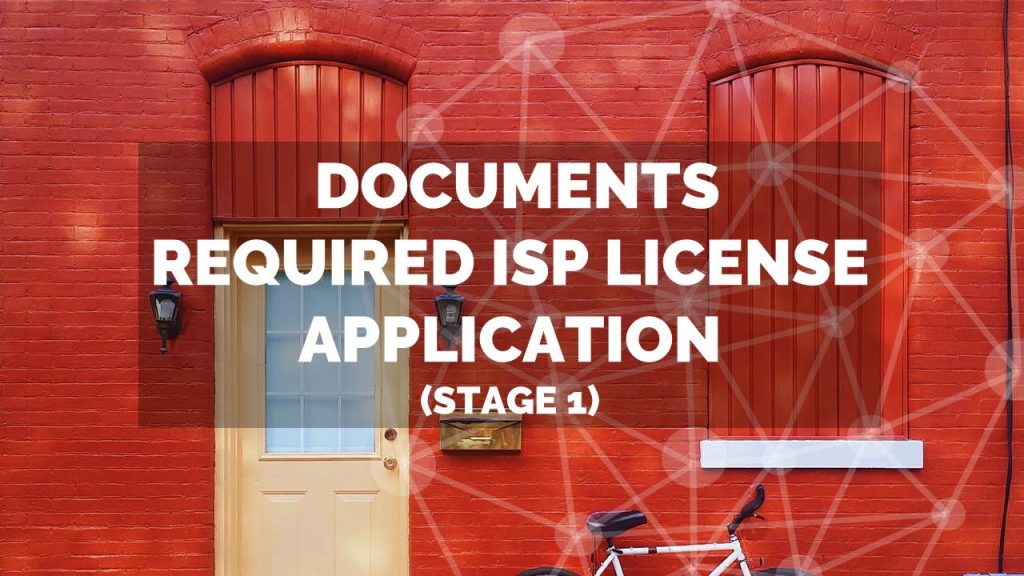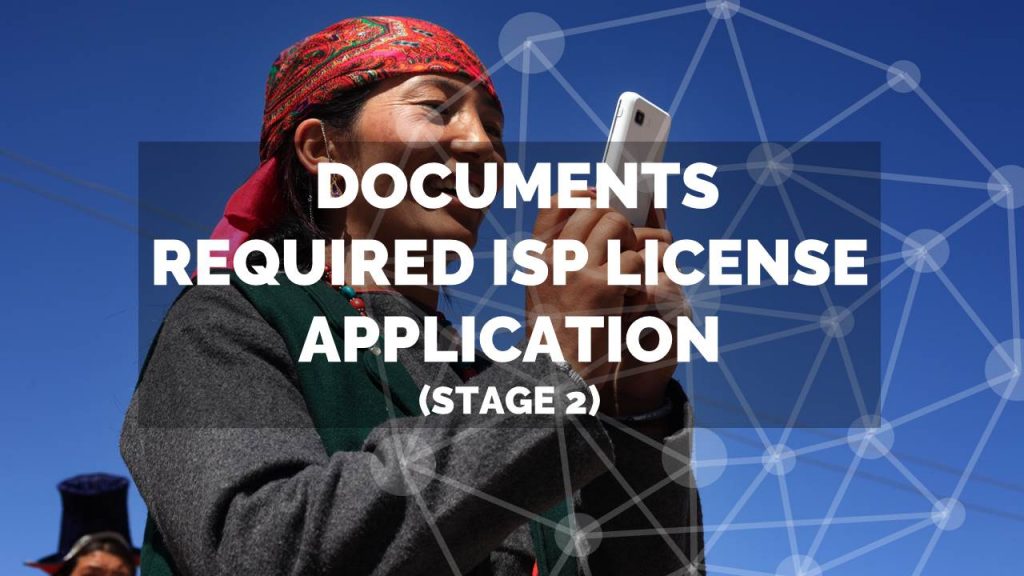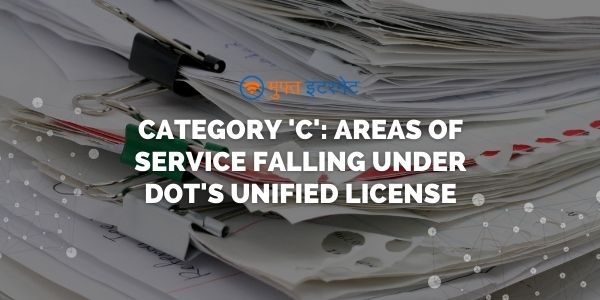
by Jinesh Parekh | Jan 30, 2017 | ISP License, Service Areas |

Unified License – Category ‘C’ Service Areas- DoT Telecom Circle / Metro
LIST OF SECONDARY SWITCHING AREA (SSA)
For Class C License |
| S. No. |
Telecom Circle/ Metro Area |
Secondary Switching Area |
| 1 |
ANDAMAN & NICOBAR |
ANDAMAN & NICOBAR |
| 2 |
ANDHRA PRADESH |
ADILABAD |
| 3 |
ANDHRA PRADESH |
ANANTPUR (GUNTKAL) |
| 4 |
ANDHRA PRADESH |
CHITTOOR |
| 5 |
ANDHRA PRADESH |
CUDDAPAH |
| 6 |
ANDHRA PRADESH |
ELURU |
| 7 |
ANDHRA PRADESH |
GUNTUR |
| 8 |
ANDHRA PRADESH |
HYDERABAD |
| 9 |
ANDHRA PRADESH |
KARIMNAGAR |
| 10 |
ANDHRA PRADESH |
KHAMAM |
| 11 |
ANDHRA PRADESH |
KURNOOL |
| 12 |
ANDHRA PRADESH |
MAHABUBNAGAR |
| 13 |
ANDHRA PRADESH |
NALGONDA |
| 14 |
ANDHRA PRADESH |
NELLORE |
| 15 |
ANDHRA PRADESH |
NIZAMABAD |
| 16 |
ANDHRA PRADESH |
ONGOLE |
| 17 |
ANDHRA PRADESH |
RAJAHMUNDRI |
| 18 |
ANDHRA PRADESH |
SANGAREDDY |
| 19 |
ANDHRA PRADESH |
SRIKAKULAM |
| 20 |
ANDHRA PRADESH |
VISAKHAPATNAM |
| 21 |
ANDHRA PRADESH |
VIZAYANAGARAM |
| 22 |
ANDHRA PRADESH |
WARANGAL |
| 23 |
ANDHRA PRADESH |
VIJAYAWADA |
| 24 |
ASSAM |
GUWAHATI |
| 25 |
ASSAM |
SILCHAR |
| 26 |
ASSAM |
TEZPUR |
| 27 |
ASSAM |
TINSUKHIA (DIBRUGARH) |
| 28 |
ASSAM |
BONGAIGAON (KOKRAJHAR) |
| 29 |
ASSAM |
JORHAT |
| 30 |
ASSAM |
NAGAON |
| 31 |
BIHAR |
CHAPRA |
| 32 |
BIHAR |
DALTONGANJ |
| 33 |
BIHAR |
DARBHANGA |
| 34 |
BIHAR |
DEOGHAR (DUMKA) |
| 35 |
BIHAR |
GAYA |
| 36 |
BIHAR |
HAZARIBAGH |
| 37 |
BIHAR |
JAMSHEDPUR |
| 38 |
BIHAR |
KATIHAR |
| 39 |
BIHAR |
MOTIHARI |
| 40 |
BIHAR |
MUZAFFARPUR |
| 41 |
BIHAR |
PATNA |
| 42 |
BIHAR |
RANCHI |
| 43 |
BIHAR |
SAHARSA |
| 44 |
BIHAR |
ARRAH |
| 45 |
BIHAR |
BHAGALPUR |
| 46 |
BIHAR |
DHANBAD |
| 47 |
BIHAR |
MONGHYAR |
| 48 |
BIHAR |
SASARAM |
| 49 |
GUJARAT |
AHMEDABAD |
| 50 |
GUJARAT |
BHARUCH |
| 51 |
GUJARAT |
BHUJ |
| 52 |
GUJARAT |
GODHRA |
| 53 |
GUJARAT |
JAMNAGAR |
| 54 |
GUJARAT |
PALANPUR |
| 55 |
GUJARAT |
SURAT |
| 56 |
GUJARAT |
VADODARA |
| 57 |
GUJARAT |
AMRELI |
| 58 |
GUJARAT |
BHAVNAGAR |
| 59 |
GUJARAT |
HIMATNAGAR |
| 60 |
GUJARAT |
JUNAGARH |
| 61 |
GUJARAT |
MEHSANA |
| 62 |
GUJARAT |
NADIAD |
| 63 |
GUJARAT |
RAJKOT |
| 64 |
GUJARAT |
SURENDRANAGAR |
| 65 |
GUJARAT |
VALSAD |
| 66 |
HARYANA |
AMBALA |
| 67 |
HARYANA |
GURGAON |
| 68 |
HARYANA |
HISSAR |
| 69 |
HARYANA |
NARNAUL |
| 70 |
HARYANA |
ROHTAK |
| 71 |
HARYANA |
JIND |
| 72 |
HARYANA |
KARNAL |
| 73 |
HARYANA |
SONIPAT |
| 74 |
HIMACHAL PRADESH |
KANGRA (DHARMSALA) |
| 75 |
HIMACHAL PRADESH |
KULLU |
| 76 |
HIMACHAL PRADESH |
SHIMLA |
| 77 |
HIMACHAL PRADESH |
HAMIRPUR |
| 78 |
HIMACHAL PRADESH |
MANDI |
| 79 |
HIMACHAL PRADESH |
SOLAN |
| 80 |
JAMMU & KASHMIR |
SRINAGAR |
| 81 |
JAMMU & KASHMIR |
JAMMU |
| 82 |
JAMMU & KASHMIR |
LEH |
| 83 |
JAMMU & KASHMIR |
RAJOURI |
| 84 |
JAMMU & KASHMIR |
UDHAMPUR |
| 85 |
KERALA |
CALICUT (KOZHIKODE) |
| 86 |
KERALA |
CANNANORE |
| 87 |
KERALA |
ERNAKULAM |
| 88 |
KERALA |
KAVARATHY |
| 89 |
KERALA |
PALGHAT |
| 90 |
KERALA |
QUILON |
| 91 |
KERALA |
TIRUVALLA |
| 92 |
KERALA |
TRICHUR |
| 93 |
KERALA |
ALLEPPY |
| 94 |
KERALA |
KOTTAYAM |
| 95 |
KERALA |
THIRUVANANTHAPURAM |
| 96 |
KARNATAKA |
BELGAUM |
| 97 |
KARNATAKA |
BELLARY |
| 98 |
KARNATAKA |
BIDAR |
| 99 |
KARNATAKA |
BIJAPUR |
| 100 |
KARNATAKA |
DAKSHIN KANADA (MANGALORE) |
| 101 |
KARNATAKA |
GULBARGA |
| 102 |
KARNATAKA |
HUBLI |
| 103 |
KARNATAKA |
RAICHUR |
| 104 |
KARNATAKA |
SHIMOGA |
| 105 |
KARNATAKA |
TUMKUR |
| 106 |
KARNATAKA |
UTTAR KANADA (KARWAR) |
| 107 |
KARNATAKA |
BANGALORE |
| 108 |
KARNATAKA |
CHIKMAGALUR |
| 109 |
KARNATAKA |
DEVANGERE |
| 110 |
KARNATAKA |
HASSAN |
| 111 |
KARNATAKA |
KODAGU (MADIKERI) |
| 112 |
KARNATAKA |
KOLAR |
| 113 |
KARNATAKA |
MANDYA |
| 114 |
KARNATAKA |
MYSORE |
| 115 |
MAHARASHTRA |
AHMEDNAGAR |
| 116 |
MAHARASHTRA |
AMRAVATI |
| 117 |
MAHARASHTRA |
AURANGABAD |
| 118 |
MAHARASHTRA |
BHANDARA |
| 119 |
MAHARASHTRA |
BHIR |
| 120 |
MAHARASHTRA |
BULDHANA |
| 121 |
MAHARASHTRA |
CHANDRAPUR |
| 122 |
MAHARASHTRA |
DHULE |
| 123 |
MAHARASHTRA |
GADCHIROLI |
| 124 |
MAHARASHTRA |
JALGAON |
| 125 |
MAHARASHTRA |
JALNA |
| 126 |
MAHARASHTRA |
KALYAN |
| 127 |
MAHARASHTRA |
KOLHAPUR |
| 128 |
MAHARASHTRA |
NAGPUR |
| 129 |
MAHARASHTRA |
NASIK |
| 130 |
MAHARASHTRA |
PEN |
| 131 |
MAHARASHTRA |
PUNE |
| 132 |
MAHARASHTRA |
RATNAGIRI |
| 133 |
MAHARASHTRA |
SANGLI |
| 134 |
MAHARASHTRA |
SATARA |
| 135 |
MAHARASHTRA |
SHOLAPUR |
| 136 |
MAHARASHTRA |
WARDHA |
| 137 |
MAHARASHTRA |
YEOTMAL |
| 138 |
MAHARASHTRA |
AKOLA |
| 139 |
MAHARASHTRA |
KUDAL |
| 140 |
MAHARASHTRA |
LATUR |
| 141 |
MAHARASHTRA |
MUMBAI |
| 142 |
MAHARASHTRA |
NANDED |
| 143 |
MAHARASHTRA |
OSMANABAD |
| 144 |
MAHARASHTRA |
PANJI |
| 145 |
MAHARASHTRA |
PARBHANI |
| 146 |
MADHYA PRADESH |
BALAGHAT |
| 147 |
MADHYA PRADESH |
BETUL |
| 148 |
MADHYA PRADESH |
BHOPAL |
| 149 |
MADHYA PRADESH |
CHHATARPUR |
| 150 |
MADHYA PRADESH |
CHHINDWARA |
| 151 |
MADHYA PRADESH |
DAMOH |
| 152 |
MADHYA PRADESH |
DHAR |
| 153 |
MADHYA PRADESH |
GWALIOR |
| 154 |
MADHYA PRADESH |
INDORE |
| 155 |
MADHYA PRADESH |
ITARSI |
| 156 |
MADHYA PRADESH |
JAGDALPUR |
| 157 |
MADHYA PRADESH |
JHABUA |
| 158 |
MADHYA PRADESH |
KHANDWA |
| 159 |
MADHYA PRADESH |
KHARGONE |
| 160 |
MADHYA PRADESH |
MANDLA |
| 161 |
MADHYA PRADESH |
MANDSAUR |
| 162 |
MADHYA PRADESH |
MORENA |
| 163 |
MADHYA PRADESH |
RAIGARH |
| 164 |
MADHYA PRADESH |
RAIPUR |
| 165 |
MADHYA PRADESH |
RATLAM |
| 166 |
MADHYA PRADESH |
REWA |
| 167 |
MADHYA PRADESH |
SEONI |
| 168 |
MADHYA PRADESH |
SHIVPURI |
| 169 |
MADHYA PRADESH |
VIDISHA |
| 170 |
MADHYA PRADESH |
BILASPUR |
| 171 |
MADHYA PRADESH |
DEWAS |
| 172 |
MADHYA PRADESH |
DURG |
| 173 |
MADHYA PRADESH |
GUNA |
| 174 |
MADHYA PRADESH |
JABALPUR |
| 175 |
MADHYA PRADESH |
NARSINGHPUR |
| 176 |
MADHYA PRADESH |
PANNA |
| 177 |
MADHYA PRADESH |
RAISEN |
| 178 |
MADHYA PRADESH |
RAJGARH |
| 179 |
MADHYA PRADESH |
SAGAR |
| 180 |
MADHYA PRADESH |
SARGUJA (AMBIKAPUR) |
| 181 |
MADHYA PRADESH |
SATNA |
| 182 |
MADHYA PRADESH |
SHAHDOL |
| 183 |
MADHYA PRADESH |
SHAJAPUR |
| 184 |
MADHYA PRADESH |
SIDHI |
| 185 |
MADHYA PRADESH |
UJJAIN |
| 186 |
DELHI |
DELHI |
| 187 |
NORTH EAST |
ARUNACHAL PRADESH (ZERO) |
| 188 |
NORTH EAST |
MANIPUR (IMPHAL) |
| 189 |
NORTH EAST |
MEGHALAYA (SHILLONG) |
| 190 |
NORTH EAST |
MIZORAM (AIZAWL) |
| 191 |
NORTH EAST |
NAGALAND (KOHIMA) |
| 192 |
NORTH EAST |
TRIPURA (AGARTALA) |
| 193 |
ORISSA |
BOLANGIR |
| 194 |
ORISSA |
BALASORE |
| 195 |
ORISSA |
BARIPADA |
| 196 |
ORISSA |
BHAWANIPATNA |
| 197 |
ORISSA |
BHUBANESWAR (PURI) |
| 198 |
ORISSA |
CUTTACK |
| 199 |
ORISSA |
DHENKANAL |
| 200 |
ORISSA |
KORAPUT |
| 201 |
ORISSA |
PHULBANI |
| 202 |
ORISSA |
SAMBALPUR |
| 203 |
ORISSA |
SUNDARGARH (ROURKELA) |
| 204 |
ORISSA |
BERHAMPUR |
| 205 |
PUNJAB |
AMRITSAR |
| 206 |
PUNJAB |
PATHANKOT |
| 207 |
PUNJAB |
BHATINDA |
| 208 |
PUNJAB |
FEROZEPUR |
| 209 |
PUNJAB |
HOSIARPUR |
| 210 |
PUNJAB |
JALANDHAR |
| 211 |
PUNJAB |
LUDHIANA |
| 212 |
PUNJAB |
PATIALA |
| 213 |
PUNJAB |
ROPAR |
| 214 |
PUNJAB |
SANGRUR |
| 215 |
PUNJAB |
CHANDIGARH |
| 216 |
RAJASTHAN |
AJMER |
| 217 |
RAJASTHAN |
ALWAR |
| 218 |
RAJASTHAN |
BARMER |
| 219 |
RAJASTHAN |
BHARATPUR |
| 220 |
RAJASTHAN |
BHILWARA |
| 221 |
RAJASTHAN |
BIKANER |
| 222 |
RAJASTHAN |
BUNDI |
| 223 |
RAJASTHAN |
CHITTORGARH |
| 224 |
RAJASTHAN |
JAIPUR |
| 225 |
RAJASTHAN |
JAISALMER |
| 226 |
RAJASTHAN |
JHALAWAR |
| 227 |
RAJASTHAN |
JODHPUR |
| 228 |
RAJASTHAN |
KOTA |
| 229 |
RAJASTHAN |
NAGAUR |
| 230 |
RAJASTHAN |
SAWAIMADHOPUR |
| 231 |
RAJASTHAN |
SIKAR |
| 232 |
RAJASTHAN |
SIROHI |
| 233 |
RAJASTHAN |
SRIGANGANAGAR |
| 234 |
RAJASTHAN |
UDAIPUR |
| 235 |
RAJASTHAN |
BANSWARA |
| 236 |
RAJASTHAN |
CHURU |
| 237 |
RAJASTHAN |
JHUNJHUNU |
| 238 |
RAJASTHAN |
PALI (MARWAR) |
| 239 |
RAJASTHAN |
TONK |
| 240 |
TAMILNADU |
TRICHY |
| 241 |
TAMILNADU |
CHENGALPATTU (KANCHEEPURAM) |
| 242 |
TAMILNADU |
COIMBATORE |
| 243 |
TAMILNADU |
CUDDALORE |
| 244 |
TAMILNADU |
DHARAMAPURI |
| 245 |
TAMILNADU |
ERODE |
| 246 |
TAMILNADU |
KARAIKUDI |
| 247 |
TAMILNADU |
MADURAI |
| 248 |
TAMILNADU |
NAGARCOIL |
| 249 |
TAMILNADU |
OOTY |
| 250 |
TAMILNADU |
SALEM |
| 251 |
TAMILNADU |
THANJAVUR |
| 252 |
TAMILNADU |
TIRUNELVELLI |
| 253 |
TAMILNADU |
TUTICORIN |
| 254 |
TAMILNADU |
VELLORE |
| 255 |
TAMILNADU |
VIRUDHUNAGAR |
| 256 |
TAMILNADU |
CHENNAI |
| 257 |
TAMILNADU |
PONDICHERRY |
| 258 |
UTTAR PRADESH (EAST) |
ALLAHABAD |
| 259 |
UTTAR PRADESH (EAST) |
BALLIA |
| 260 |
UTTAR PRADESH (EAST) |
BANDA |
| 261 |
UTTAR PRADESH (EAST) |
BARABANKI |
| 262 |
UTTAR PRADESH (EAST) |
FARRUKHABAD |
| 263 |
UTTAR PRADESH (EAST) |
GORAKHPUR |
| 264 |
UTTAR PRADESH (EAST) |
JHANSI |
| 265 |
UTTAR PRADESH (EAST) |
KANPUR |
| 266 |
UTTAR PRADESH (EAST) |
LAKHIMPUR KHERI |
| 267 |
UTTAR PRADESH (EAST) |
LUCKNOW |
| 268 |
UTTAR PRADESH (EAST) |
MIRZAPUR |
| 269 |
UTTAR PRADESH (EAST) |
RAIBAREILLY |
| 270 |
UTTAR PRADESH (EAST) |
SITAPUR |
| 271 |
UTTAR PRADESH (EAST) |
AZAMGARH |
| 272 |
UTTAR PRADESH (EAST) |
BAHRAICH |
| 273 |
UTTAR PRADESH (EAST) |
BASTI |
| 274 |
UTTAR PRADESH (EAST) |
DEORIA |
| 275 |
UTTAR PRADESH (EAST) |
ETAWAH |
| 276 |
UTTAR PRADESH (EAST) |
FAIZABAD |
| 277 |
UTTAR PRADESH (EAST) |
FATEHPUR |
| 278 |
UTTAR PRADESH (EAST) |
GHAZIPUR |
| 279 |
UTTAR PRADESH (EAST) |
GONDA |
| 280 |
UTTAR PRADESH (EAST) |
HAMIRPUR |
| 281 |
UTTAR PRADESH (EAST) |
HARDOI |
| 282 |
UTTAR PRADESH (EAST) |
JAUNPUR |
| 283 |
UTTAR PRADESH (EAST) |
MAINPURI |
| 284 |
UTTAR PRADESH (EAST) |
ORAI |
| 285 |
UTTAR PRADESH (EAST) |
PRATAPGARH |
| 286 |
UTTAR PRADESH (EAST) |
SAHJAHANPUR |
| 287 |
UTTAR PRADESH (EAST) |
SULTANPUR |
| 288 |
UTTAR PRADESH (EAST) |
UNNAO |
| 289 |
UTTAR PRADESH (EAST) |
VARANASI |
| 290 |
UTTAR PRADESH (WEST) |
ALMORA |
| 291 |
UTTAR PRADESH (WEST) |
BAREILLY |
| 292 |
UTTAR PRADESH (WEST) |
BUDAUN |
| 293 |
UTTAR PRADESH (WEST) |
DEHRADUN |
| 294 |
UTTAR PRADESH (WEST) |
UTTARKASHI |
| 295 |
UTTAR PRADESH (WEST) |
AGRA |
| 296 |
UTTAR PRADESH (WEST) |
ALIGARH |
| 297 |
UTTAR PRADESH (WEST) |
BIJNORE |
| 298 |
UTTAR PRADESH (WEST) |
ETAH |
| 299 |
UTTAR PRADESH (WEST) |
GHAZIABAD |
| 300 |
UTTAR PRADESH (WEST) |
KOTDWARA |
| 301 |
UTTAR PRADESH (WEST) |
MATHURA |
| 302 |
UTTAR PRADESH (WEST) |
MEERUT |
| 303 |
UTTAR PRADESH (WEST) |
MORADABAD |
| 304 |
UTTAR PRADESH (WEST) |
MUZAFFARNAGAR |
| 305 |
UTTAR PRADESH (WEST) |
NAINITAL |
| 306 |
UTTAR PRADESH (WEST) |
PILIBHIT |
| 307 |
UTTAR PRADESH (WEST) |
RAMPUR |
| 308 |
UTTAR PRADESH (WEST) |
SAHARANPUR |
| 309 |
WEST BENGAL |
ASANSOL |
| 310 |
WEST BENGAL |
BALURGHAT (RAIGANJ) |
| 311 |
WEST BENGAL |
BEHRAMPUR |
| 312 |
WEST BENGAL |
CALCUTTA |
| 313 |
WEST BENGAL |
JALPAIGURI |
| 314 |
WEST BENGAL |
KRISHNAGAR |
| 315 |
WEST BENGAL |
MALDA |
| 316 |
WEST BENGAL |
MIDNAPUR (KHARAGPUR) |
| 317 |
WEST BENGAL |
PURULIA |
| 318 |
WEST BENGAL |
BANKURA |
| 319 |
WEST BENGAL |
COOCH BEHAR |
| 320 |
WEST BENGAL |
DARJEELING (SILIGURI) |
| 321 |
WEST BENGAL |
GANGTOK |
| 322 |
WEST BENGAL |
SURI |
Muft Internet is an ISP consultancy firm dedicated to help aspiring, small and mid-sized Internet service providers in India overcome their technical or legal roadblocks.
Wondering how to start your own business in India? Plan your own ISP/WISP business, apply for an ISP license, deploy your network or buy bulk bandwidth – our ISP consultants are here to help you grow or become an internet bandwidth provider in India.
Request a callback using the form below, call us on +91 80802 40000 or email us on [email protected]; and start/grow your ISP/WISP business!
[contact-form-7 404 "Not Found"]
ALSO, YOU CAN READ OUR NEW UPDATES
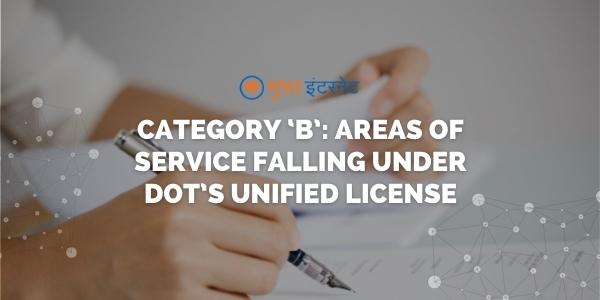
by Jinesh Parekh | Jan 28, 2017 | ISP License, Service Areas |

Unified License – Category ‘B’ Service Areas- DoT Telecom Circle / Metro
| Sl. No. |
Name of Telecom Circle/ Metro |
Areas covered |
Category |
| 01. |
West Bengal |
Entire area falling within the Union Territory of Andaman & Nicobar Islands and area falling within the State of West Bengal and the State of Sikkim excluding the areas covered by Kolkata Metro Service Area. |
B |
| 02. |
Andhra Pradesh |
Entire area falling within the State of Andhra Pradesh. |
A |
| 03. |
Assam |
Entire area falling within the State of Assam. |
C |
| 04. |
Bihar |
Entire area falling within the re-organised State of Bihar and newly created State of Jharkhand pursuant to the Bihar Reorganisation Act, 2000 (No.30 of 2000) dated 25th August, 2000. |
C |
| 05. |
Gujarat |
Entire area falling within the State of Gujarat and Union Territory of Daman and Diu, Silvassa (Dadra & Nagar Haveli). |
A |
| 06. |
Haryana |
Entire area falling within the State of Haryana except the local areas served by Faridabad and Gurgaon Telephone exchanges. |
B |
| 07. |
Himachal Pradesh |
Entire area falling within the State of Himachal Pradesh |
C |
| 08. |
Jammu & Kashmir |
Entire area falling within the State of Jammu & Kashmir including the autonomous council of Ladakh. |
C |
| 09. |
Karnataka |
Entire area falling within the State of Karnataka |
A |
| 10. |
Kerala |
Entire area falling within the State of Kerala and Union Territory of Lakshadeep and Minicoy. |
B |
| 11. |
Madhya Pradesh |
Entire area falling within the re-organised State of Madhya Pradesh as well as the newly created State of Chattisgarh pursuant to the Madhya Pradesh Reorganisation Act, 2000 (No:28 of 2000) dated 25th August, 2000. |
B |
| 12. |
Maharashtra |
Entire area falling within the State of Maharashtra and Union Territory of Goa, excluding areas covered by Mumbai Metro Service Area. |
A |
| 13. |
North East |
Entire area falling within the States of Arunachal Pradesh, Meghalaya, Mizoram, Nagaland, Manipur and Tripura. |
C |
| 14. |
Orissa |
Entire area falling within the State of Orissa. |
C |
| 15. |
Punjab |
Entire area falling within the State of Punjab and Union territory of Chandigarh. |
B |
| 16. |
Rajasthan |
Entire area falling within the State of Rajasthan. |
B |
| 17. |
Tamilnadu |
Entire area falling within the State of Tamilnadu and Union Territory of Pondichery excluding the areas covered by Chennai Metro Service Area. |
A |
| 18. |
Uttar Pradesh-West |
Entire area covered by Western Uttar Pradesh with the following as its boundary districts towards Eastern Uttar Pradesh : Pilibhit, Bareilly, Badaun, Etah, Mainpuri and Etawah. It will exclude the local telephone area of Ghaziabad and Noida. However, it will also include the newly created State of Uttaranchal pursuant to the Uttar Pradesh Re-organisation Act, 2000 (No.29 of 2000) dated 25th August, 2000. |
B |
| 19. |
Uttar Pradesh _ East |
Entire area covered by Eastern Uttar Pradesh with the following as its boundary districts towards Western Uttar Pradesh : Shahjahanpur, Farrukhabad, Kanpur and Jalaun. |
B |
| 20. |
Chennai |
Local Areas served by Chennai Telephones, Maraimalai Nagar Export Promotion Zone (MPEZ), Minzur and Mahabalipuram Exchanges |
Metro |
| 21. |
Delhi |
Local Areas served by Delhi, Ghaziabad, Faridabad, Noida, and Gurgaon Telephone Exchanges |
Metro |
| 22. |
Kolkata |
Local Areas served by Calcutta Telephones. |
Metro |
| 23. |
Mumbai |
Local Areas served by Mumbai, New Mumbai and Kalyan Telephone Exchanges |
Metro |
NOTE:
- Yenum, an area of Union Territory of Pondicherry is served under Andhra Pradesh Telecom Circle in East Godavari LDCA.
- The definition of Local areas of exchanges will be as applicable to the existing cellular operators, i.e. at the time of grant of cellular Licences in Metro cities.
- The definition of local areas with regard to the above service area as applicable to this Licence is as per definition applicable to Cellular Mobile Service Licences as in the year 1994 & 1995, when those Licences were granted to them. This is in accordance with respective Gazette Notification for such local areas wherever issued and as per the statutory definition under Rule 2 (w) Indian Telephones Rules, 1951, as it stood during the year 1994/1995 where no specific Gazette Notification has been issued.
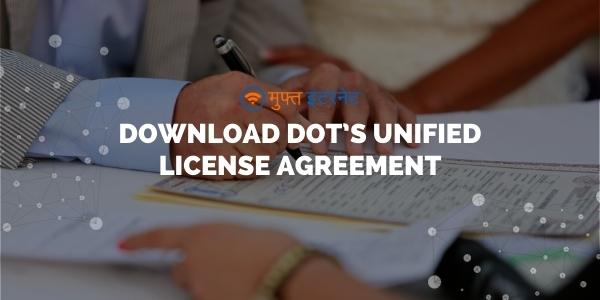
by Jinesh Parekh | Jan 27, 2017 | ISP License |

The Government of India has come up with one license for all telecom related services, known as a Unified License. Under unified license, the license holder can apply for ISP license for different areas. One must acquire a Unified License under which he will obtain Authorization for providing ISP services for a certain area. Hence, it must be understood that there is no separate ISP license as such. Instead, one must obtain ISP Authorization under the Unified License.
One company can hold only one Unified License, but can apply for multiple ISP authorizations of different areas. However, the tenure of such authorizations will run concurrently with the tenure of the Unified License, which means that all authorizations will be valid only till the validity of the unified license
Also checkout our articles on how to apply for a Unified License and VNO Authorization. how to start your own business in India.
ALSO, YOU CAN READ OUR NEW UPDATES
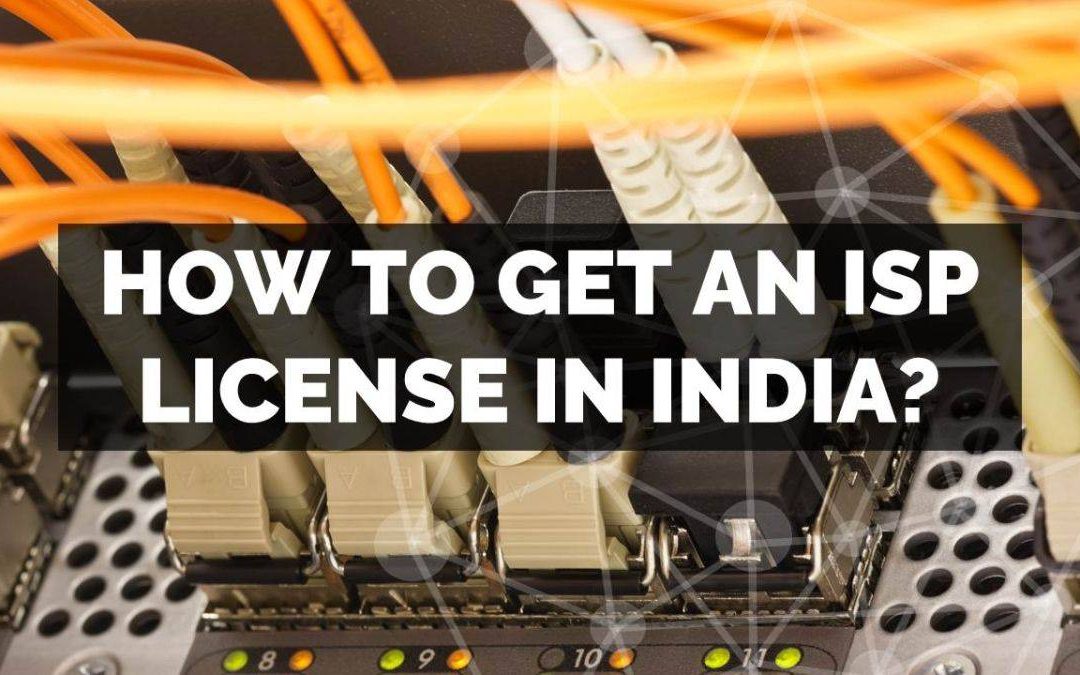
by Jinesh Parekh | Dec 19, 2016 | ISP License |
In this article we explain how to (apply for &) get an ISP license in India?
The Government of India has come up with one license for all telecom related services, known as a Unified License. Under unified license, the license holder can apply for ISP license for different areas. One must acquire a Unified License under which he will obtain Authorization for providing ISP services for a certain area such as providing internet for rural areas in India. Hence, it must be understood that there is no separate ISP license as such. Instead, one must obtain ISP Authorization under the Unified License.
One company can hold only one Unified License, but can apply for multiple ISP authorizations of different areas. However, the tenure of such authorizations will run concurrently with the tenure of the Unified License, which means that all authorizations will be valid only till the validity of the unified license.
One company can hold only one Unified License, but can apply for multiple ISP authorizations of different areas. However, the tenure of such authorizations will run concurrently with the tenure of the Unified License, which means that all authorizations will be valid only till the validity of the unified license.
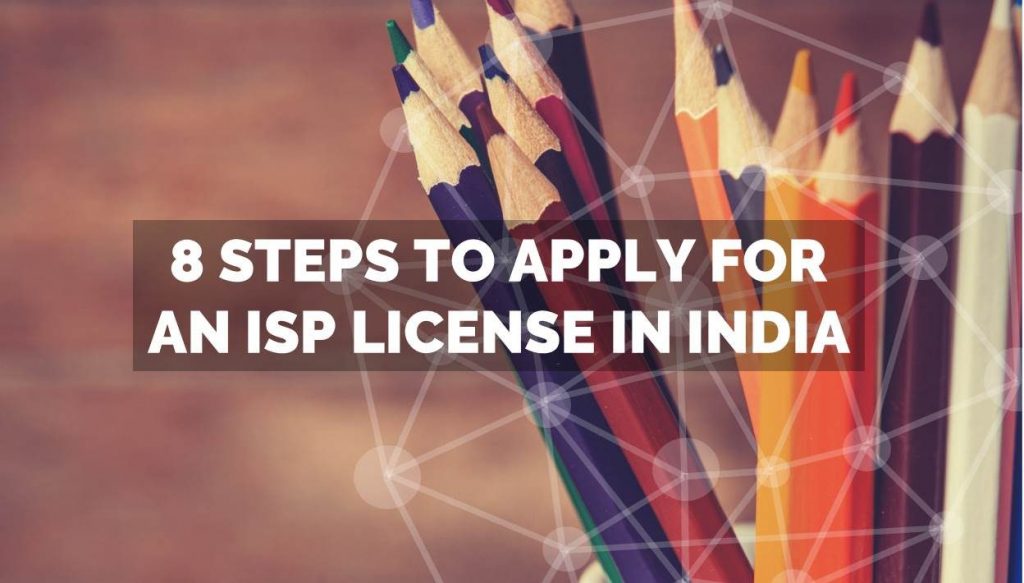
Step 1: How to (apply for &) get an ISP license in India? – Check Eligibility
To obtain an ISP license, you require a registered company under the Companies Act, 1956. You can log on to the Registrar of Companies’ website for more information on how to register a company if you haven’t already registered yours.
Step 2: How to (apply for &) get an ISP license in India? – Choose a suitable ISP license category to apply under
The next step to obtaining an ISP license is to know / decide which category of license you require – category A, B or C. Click here to know more about how to select the right category for your ISP License.
In India, there are 3 different categories of licenses to become an internet service provider, depending upon the City/State/Town/District/Village you want to start your ISP business in.
The 3 categories of ISP licenses are:
- Class A (National Area)
- Class B (Telecom Circle/Metro Area)
- Class C (Secondary Switching Area)
Naturally, a Class A ISP license would be quite expensive, followed by Class B & C respectively.
Step 3: How to (apply for &) get an ISP license in India? – Budgeting and Costing
To promote internet access in smaller towns, cities & villages, the Government of India has made a conscious effort to ease prices of a Class C license compared to a Class A or B license.
The following table will explain the financial entry conditions you require to fulfill in order to obtain a Class A/B/C ISP license:
| Service |
Minimum Equity |
Minimum Net worth |
Entry Fee (Rs.) |
Performance BG (Rs.) |
Financial BG (Rs.) |
Application Processing Fee (Rs.) |
Total Capital Required (Rs.) |
| ISP “A” (National Area) |
Nil |
Nil |
30 Lakh |
40 Lakh |
2 Lakh |
50 Thousand |
72,50,000 |
| ISP “B” (Telecom circle/Metro Area) |
Nil |
Nil |
2 Lakh |
2 Lakh |
20 Thousand |
15 Thousand |
4,35,000 |
| ISP “C” (SSA) |
Nil |
Nil |
20 Thousand |
10 Thousand |
2 Thousand |
10 Thousand |
42,000 |
As you can see above, the total capital required for a Class C license is INR 42,000/- whereas for a Class A license is as high as 72.5 Lakh.
Thus, in order to become a Class C ISP licence holder, you don’t require more than Rs. 1 lakh, depending on the lawyer / ISP consultant fees.
Once you have selected the category of the ISP license you want to obtain as per your ISP business plan in India, it is important to know how the entire application process goes.
Now, let’s take you through on how to apply for an ISP license & the documents, legal help, etc. you will require.
Step 4: How to (apply for &) get an ISP license in India? – Initial Application Process
- After you have chosen your ISP license category, you will need to fill out an application form.
- Along with the form, a non-refundable Processing Fee of INR 15,000/- must be paid by the applicant, along with 2 copies of the application form, by DD/Pay Order from a Schedule Bank payable at New Delhi issued in the name of Pay & Accounts Officer (Headquarter) DOT.
- Provide all required official documents. Click here to know the list of documents required.
Step 5: How to (apply for &) get an ISP license in India? – Document Review
Once you have submitted your application form along with the required documents & fees, the Department of Telecom will review your application & respond to you, the applicant, in under 60 days, as far as practicable i.e. in case there are any issues with your application, there may be a delay in the issuing of a response from the DOT.
If there is no problem with your complete application, the DOT will issue a ‘Letter of Intent’ in your favor.
However, there are chances that your application may be rejected or delayed due to non-compliance with legal, security, hardware, commercial and contractual compliance and human errors such as incomplete form submission.
Therefore, it is important to get an ISP consultant / lawyer to review your application before you submit your application form for obtaining the ISP authorization under the Unified License . Click here to know more.
Step 6: How to (apply for &) get an ISP license in India? – Letter of Intent
If there are no issues with your application form for obtaining the ISP authorization under the Unified License, the DOT will issue a ‘Letter of Intent’ in your favor. Once the Letter of Intent is issued,
- You will have to submit the one-time entry fee (as mentioned in the table above) along with the required bank guarantees.
- Furthermore, you will have to submit a signed license agreement with the DOT and any other documents required, including the documents mentioned in the Letter of Intent.
- Do note that the one-time entry fee is non-refundable & once the Letter of intent is issued, all the above requirements have to be fulfilled within a specific period that will be mentioned in the Letter of Intent.
Step 7: How to (apply for &) get an ISP license in India? – Confirmation
If everything goes smoothly, you will be issued an ISP authorization under the Unified License for a period of 20 years. The DOT will contact you / mail you directly to inform you whether you have been issued the ISP License.
Step 8: How to (apply for &) get an ISP license in India? Conclusion – Need for Expertise: Get/Apply an ISP license in India
The process of ISP licensing is technical and lengthy for a common person to comprehend. There have been quite a few instances where the application is rejected because of an incomplete submission, missing information, non-compliance, missing documents etc. Thus, it is advisable to get your documents & forms reviewed by a professional ISP consultant or lawyer to make sure you don’t lose out on time & money.
Click here to know more about our ISP consultancy.
Disclaimer: the rules keep changing as per notifications by DOT and Govt. This information was published on Oct’2016. Do not treat this as professional advice, kindly contact us for up-to-date compliance and to avail professional assistance for your application.
Need an ISP consultant to help you with your ISP License Application?
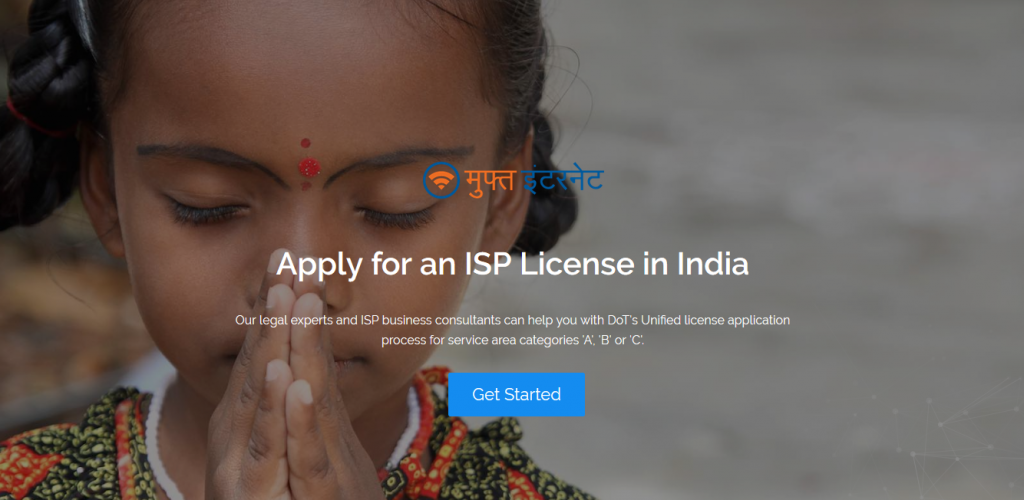
ALSO, YOU CAN READ OUR NEW UPDATES
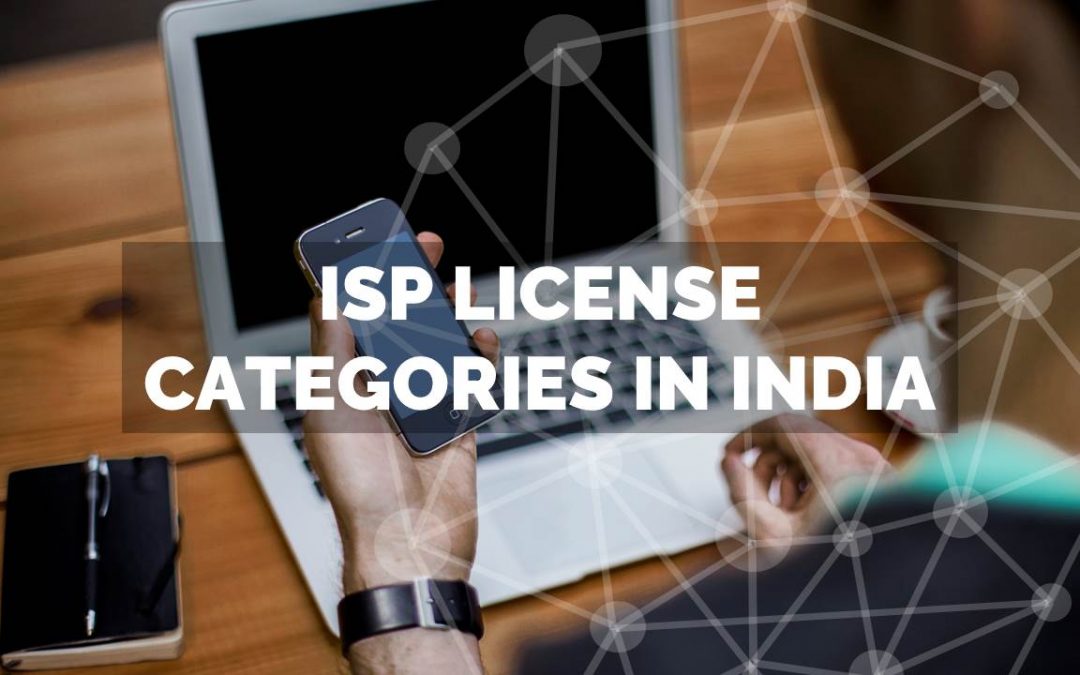
by Jinesh Parekh | Dec 11, 2016 | ISP License |
In this article we provide information on types of ISP License categories in India
The Government of India has come up with one license for all telecom related services, known as a Unified License. Under unified license, the license holder can apply for authorization of different services & service areas. To become an ISP, one must acquire a Unified License under which he will obtain Authorization for providing ISP services. Hence, it must be understood that there is no “ISP License” as such. Instead, one must obtain ISP Authorization under the Unified License.
One company can hold only one Unified License, but can apply for authorization of multiple services and/or service areas. However, the tenure of such authorizations will run concurrently with the tenure of the Unified License, which means that all authorizations will be valid only till the validity of the unified license.
In India, there are 3 categories of ISP license authorizations under the Unified License to become an internet service provider, depending upon scale or the City/State/Town/District/Village you want to start your ISP business in and set up your internet franchise in India.
The 3 categories are differentiated by the scale of the territory/coverage area of the ISP license i.e. whether the License is for (i) national area, (ii) major states / metro cities or (iii) other smaller cities, towns, villages and districts.
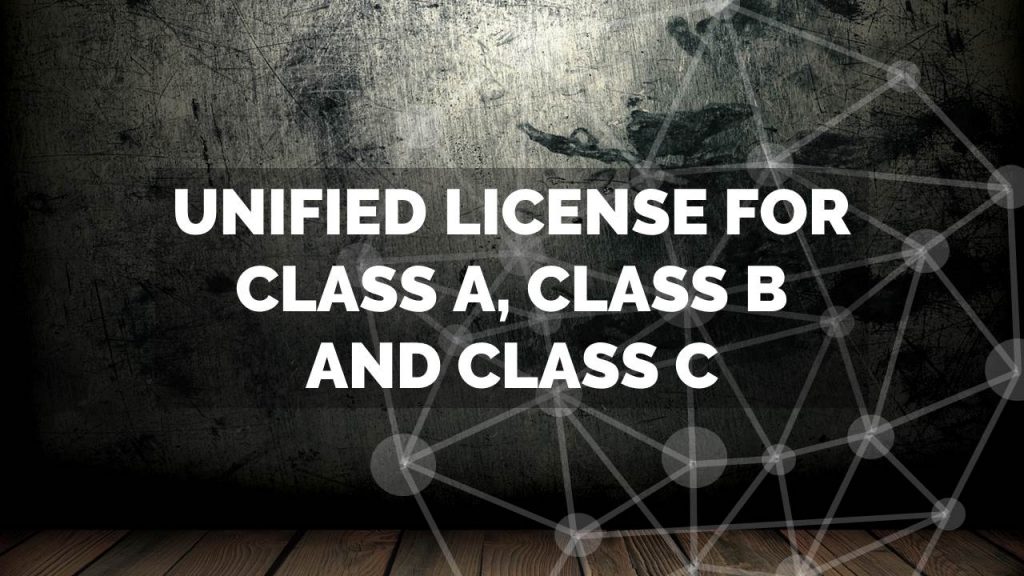
The 3 ISP License Categories in India are:
- Class A (National Area) – This license is for Pan India operations.
To see a list of all Nation Area license holders in India, click here.
- Class B (Telecom Circle/Metro Area) – Class B license is issued for a total of 20 major states or any of the following Metro Cities – Mumbai, New Delhi, Kolkata, Chennai.
The govt keeps issuing notifications regarding territories declared as telecom circles and metro areas from time to time.
- Class C (Secondary Switching Area) – This license is for only a particular secondary switching area. A secondary switching area is a government defined territory which could comprise of several small villages, towns or even districts. A class C license holder will have access to any 1 particular SSA only, unless he applies for multiple authorizations under one unified License.
To know more about the secondary switching areas in India, click here.
Naturally, a Class A ISP license would be quite expensive, followed by Class B & C respectively.
Click here to know the costs.
Click here to know how to apply for any one of the ISP License Categories
Need an ISP consultant to help you with your ISP License Application? Click here

ALSO, YOU CAN READ OUR NEW UPDATES







